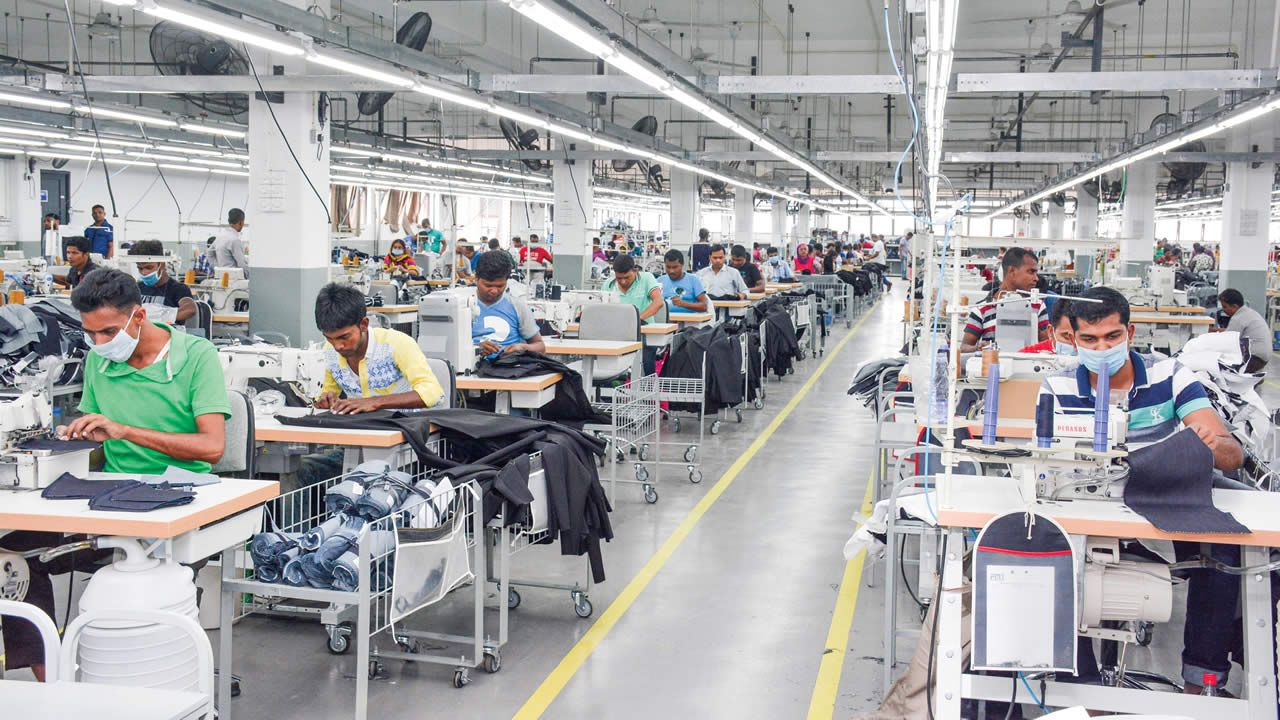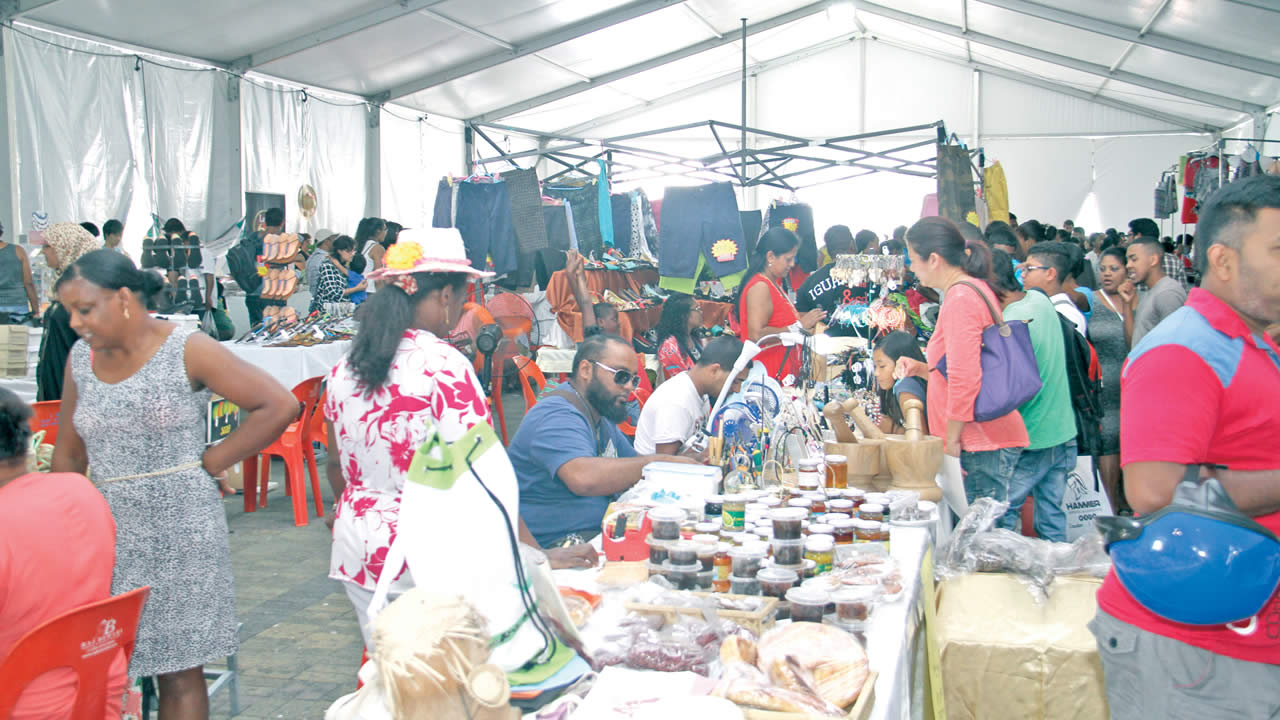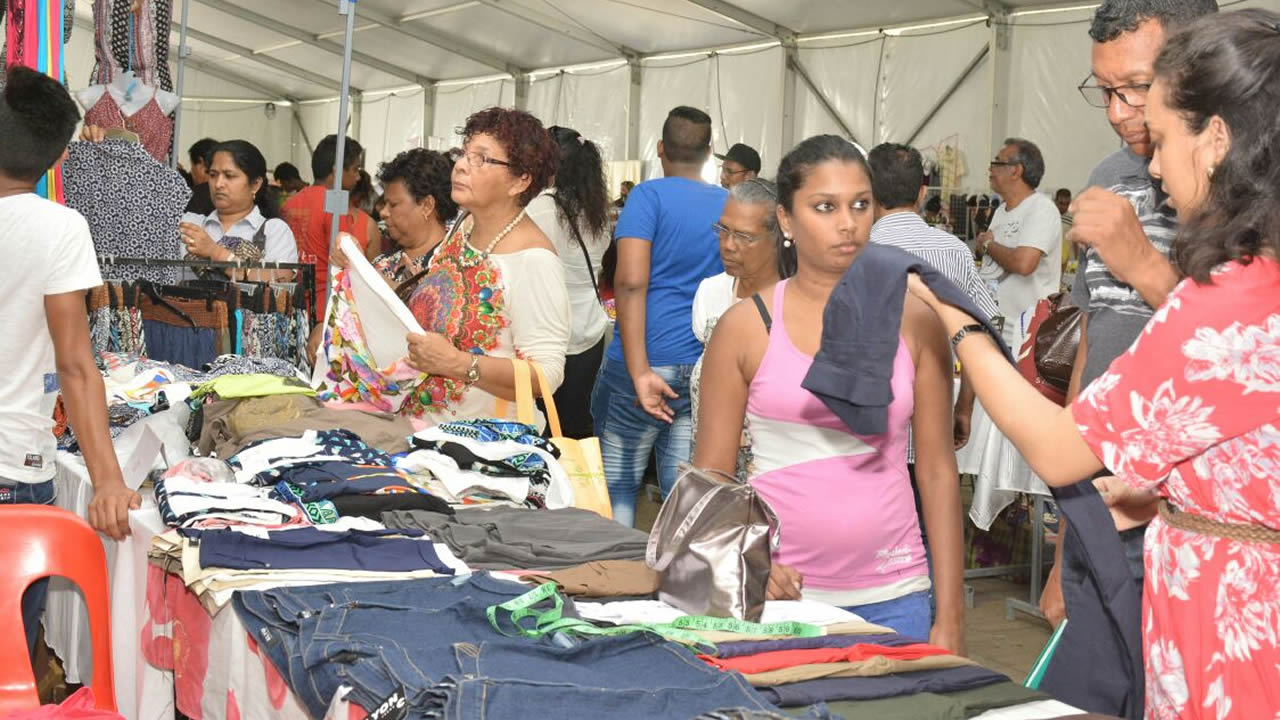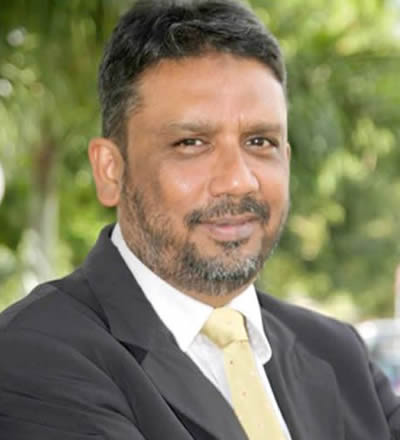
The textile industry has faced many challenges since the past years. Indeed, the industry, which was once very flourishing, has started declining. The cost of production has escalated mainly due to the labour cost, the introduction of the minimum wage in January 2018, the rising of heavy oil prices, the depreciation of the rupee against the dollar – all these have given a hard blow to this industry.
Publicité
The CEO of Star Knitwear explains that the year 2010 was the most difficult year for the textile industry in Mauritius. “There was a decrease in export and even in terms of employment, the curve went down. This is due to the delocalisation of many factories in Mauritius, which moved to countries like Madagascar and Bangladesh. The manufacturing industry is expensive in Mauritius, as the cost of operation has escalated due to reasons such as the rise in heavy oil prices, which has gone from Rs 12 to Rs 20. We have upgraded the quality and value of our products but as the cost of production has gone up, it affects profitability.”
Ahmed Parkar utters that 2018 has definitely been difficult in terms of profitability. “But we have a well-trained workforce. The Government has done much to increase the workforce but again the major issue remains the cost of production, which affects us greatly. We must come up with a strategy that will increase our visibility on the market and our profitability as well. The subsidy on airfreight on European countries has surely helped us, as it has given us scope for a significant expansion in investment and in the number employed, which has benefitted us.”
Regarding year 2019, Parkar queries if Mauritius will be able to face the many difficulties waiting ahead. “For example, the United Kingdom is a very important market for the Mauritian textile. If Brexit is voted in England and if things go wrong, our given scope for a significant expansion in investment and in the number employed will enormously go down. In addition to this, countries like France are going through big crisis. Our industry can also suffer from the climate change impact, such as flooding and other calamities,” he says.
He trusts that in 2019, the industry should focus on continuing to produce high-end items and at the same time, create a “structure where the price of labour is cheaper. We must also maintain the quality and value of our products. We must likewise come up with ways which will allow us to be more efficient in finding solutions to reduce costs. Our visibility on the market is also low, as we cannot control the events taking place in foreign countries. I trust that the textile and manufacturing industry has a future but the market is very unstable,” he states.
Ahmed Parkar trusts that investment in the industry is also a must in 2019. “We must invest in terms of infrastructure, equipment and others. Through these, we will have the capacity to produce items that other countries cannot do. It is thus crucial for the budget of 2019 to focus on these, which will pave the way to a clearer vision of where we are heading in the industry. The manufacturing industry is a very important one as it creates jobs for many people who are down the social ladder. We thus have to continue providing professional training to the workforce both at production and operation level. We must continue to boost the industry as long as we will not be able to replace it with another flourishing one. Everything will also depend on the benchmarking set up for this sector. Overall, I look at the year 2019 with a positive mind-set but if nothing concrete is done, such as investment in innovation, it will be very difficult for us to survive.”
Small and Medium Enterprises Sector : continuity of aid plans and support schemes

The Small and Medium Enterprises sector looks promising in 2019 in terms of support schemes and measures which will be implemented by the Ministry of Business, Enterprises and Cooperatives. In fact the Ministry plans to focus on the continuity of the initiated aid plans and support schemes put in place the past year namely:
- Barcode Registration Scheme: Subsidy for barcode registration and training of the SMEs for the use of the bar codes.
- Online Presence Scheme: Subsidy to SMEs to create a website with interactive content, ensure a presence on social networks and develop communication and digital marketing strategies.
- Inclusive Business Scheme: Enabling well-established organizations to integrate SMEs into their production chains. Reimburse organizations that use SMEs in their production chains.
- Mentoring & Handholding: Site visits, recommendations for intervention, coaching, assistance and supervision by experts.
- Certification Scheme: Grant to SMEs for national and international certifications.
- SME Productivity Improvement Program: Subsidy to finance a Productivity Improvement Program for SMEs after an audit.
- Foreign Expertise and Technical Assistance Scheme: The assistance of foreign experts for the training of craftsmen in specific fields.
In 2019, the Ministry also plans to pay particular attention to innovation and capacity building of SMEs. As such, the Ministry plans to continue with the implementation of the recommendations of the Master Plan for SMEs launched in 2017. 20% of the recommendations have already been implemented in year 2018.
Other measures on which the Ministry is currently working and which will emerge or which will be initiated in 2019, as recommended by the Master Plan, will be in line with the following key objectives:
- Rationalise Institutional Support Framework and Streamline Regulatory Procedures for SMEs
- Foster a Culture of Entrepreneurship and High Growth Potential SMEs
- Mainstream Entrepreneurship into National Education Curriculum
- Foster Emergence of High Tech and Value Adds SMEs
- Set up an e-Platform for SMEs
- Broaden Capacity and Options to obtain Funding
- Strengthen SME capabilities to penetrate domestic and foreign markets
- Strengthen SME capabilities to penetrate domestic and foreign markets
- Entrepreneurship and SME Development
- Greening SMEs

The SME Employment Scheme will continue to be carried on in 2019. In 2018 there have been the scheme that has allowed the placement of 1,000 graduates in SMEs under the SME Employment Scheme, the monthly allowance of Rs14,000 paid by the government, addressing the problem of youth unemployment, instilling a culture of entrepreneurship among the younger generation, the placement of 450 graduates in SMEs, just to name a few.
There has also been the implementation of several agreements signed between SME Mauritius and institutions such as Made in Moris, Business Mauritius, the Chamber of Commerce and Industry, Association of Mauritian Manufacturers, Institut de la Francophonie pour l’Entrepreneuriat, among others. At the same time, other agreements will be updated or finalized with other institutions for bilateral collaboration in favour of SMEs in 2019.
 Irshad Mallam-Hassam : “2019 is a year to watch”
Irshad Mallam-Hassam : “2019 is a year to watch”
Partner at Nexia Baker & Arenson, Irshad Mallam-Hassam argues that forging through the fog will not be easy for any observer who wants to get a glimpse of what is in store for Mauritius in 2019. “This New Year will see fresh general elections being held and will certainly witness some major initiatives from the Government to improve the lives of the people. But over the long term, only a sustained and robust economic growth will have a significant impact in improving the living conditions of the population. To uncover what we can expect from 2019, let’s go back to the basics.”
He further elaborates that “inflation rate is currently at 3.5% and an annual GDP growth rate of 4.0% is expected for 2018. This is still not sufficient to create substantial growth for the country but would at best allow our current standard of living to be maintained. Are we going to see any material change that will affect the economic growth in 2019?”
According to him, the budgetary measures for the year 2018-2019 have not produced till now the spark required to ignite the economy back on a robust growth path. “This is not due to a lack of willingness from the Government of the day to improve the economy but rather due to the structural setup of our economy. Our economic pillars are reaching saturation point and successive governments have not been quite successful in readjusting our economy to create more value and growth. To a large extent, we are in a situation of economic growth trap. We have been stagnating at a 3.5% growth over the past 10 years or so.”
He believes that the main engine of growth of our economy, which is the financial services, is sputtering. “This is a consequence of profound changes on a global scale that are out of our hands for the most part. The G7 economies are themselves suffering from a slump in growth and are increasingly mindful of tax evasions and have been putting more stringent regulations on international financial centres.”
Investment
Talking about investment, the Government has rightly identified a set of investments that are required to jolt the economy, namely public infrastructure spending. “Thus the Metro Express is well engaged and expected to be completed before end of 2019. Yet, the direct and long-term benefits of the Metro Express remain to be seen. This can create a feel-good factor for some time but might not jumpstart the economy for good.”
For him, it is common wisdom that good infrastructure attracts FDI (Foreign Direct Investments) and therefore additional investments are being made in our road infrastructure, maritime port and airport, as well as electricity generation and distribution grid. However, on this current trend, we cannot expect a significant positive change in the economic growth pattern but instead Mauritius could be a victim of a major downturn in the global economy if the US economy slows down.
Silver lining
Mauritius has been able to position itself as a credible and a fairly sophisticated economy in the sub-Saharan region over the past years, he claims. “This needs to be capitalised upon further. The developed countries still represent 80% of the world economy as compared to emerging economies of the African continent, and thus they should remain our main markets for the moment with our export and investment promotion agencies focusing their attention in this direction.”
Our economic strategy should concentrate on identifying products and services that could be of interest to them, he puts forward. “The Digital economy certainly offers many possibilities for growth and holds the potential of pushing our economy on a more ambitious growth trajectory. Our challenge for 2019 should thus be on ‘How’ to harness the opportunities laying ahead of the country.”

Notre service WhatsApp. Vous êtes témoins d`un événement d`actualité ou d`une scène insolite? Envoyez-nous vos photos ou vidéos sur le 5 259 82 00 !





















